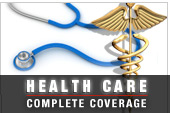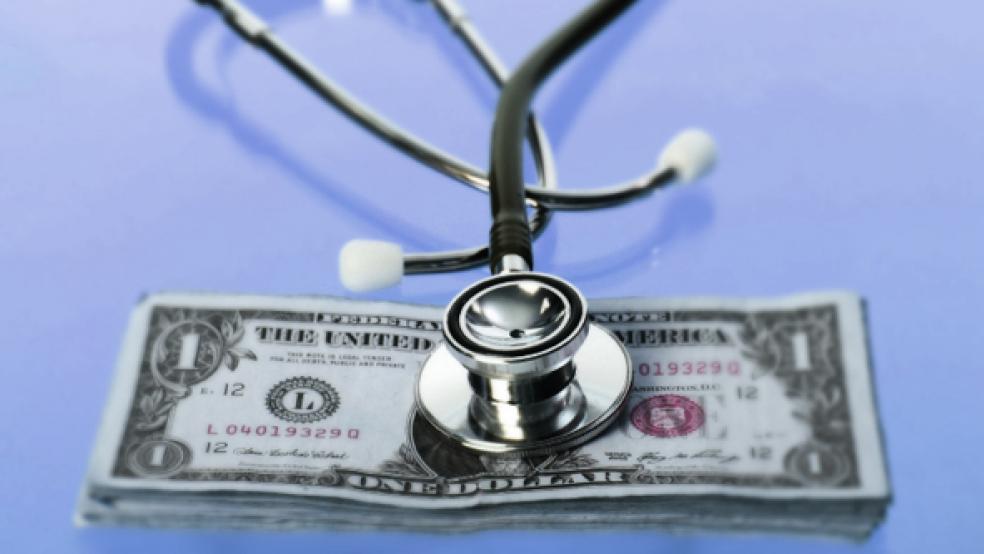After surviving a Supreme Court decision and a presidential election, the Obama administration’s health-care law faces another challenge: a public largely unaware of major changes that will roll out in the coming months.

States are rushing to decide whether to build their own health exchanges and the administration is readying final regulations, but a growing body of research suggests that most low-income Americans who will become eligible for subsidized insurance have no idea what’s coming.
Part of the problem, experts say, is that people who will be affected don’t realize the urgency because the subsidies won’t begin for another year. But policy decisions are being made now that will affect tens of millions of Americans, and the lack of public awareness could jeopardize a system that depends on having many people involved.

Low enrollment could lead to higher premiums, health policy experts say. Hospitals worry that, without widespread participation, they will continue getting stuck with patients’ unpaid medical bills. And advocates say the major purpose of the Affordable Care Act — extending health insurance to more Americans — will go unmet if large numbers of vulnerable people don’t take advantage of it.
But because “Obamacare” has been so controversial, and its fate caught up in the presidential campaign, there has been little public discussion about the specifics of putting it into action. States such as Texas and Florida, where opposition to the legislation was strong, have been slow to embrace the law and critics have been loath to promote it. Initial White House efforts at outreach caused congressional Republicans to accuse the administration of using taxpayer money for political gain.
In mid-November, Ways and Means Committee Chairman Dave Camp (R-Mich.) subpoenaed Health and Human Services Secretary Kathleen Sebelius, demanding information about how her agency has used federal money to promote the Affordable Care Act. The administration is preparing a final budget for an outreach program focused on the opening of the exchanges in October.
“People hear it’s going to come in 2014, which makes it not very relevant to their lives,” said Tevi Troy, a top Health and Human Services official under President George W. Bush. “If you don’t have an understanding of the law, that’s when you’re going to have real take-up problems.”
Seventy-eight percent of the uninsured Americans who are likely to qualify for subsidies were unfamiliar with the new coverage options in a survey by Democratic polling firm Lake Research Partners. That survey, sponsored by the nonprofit Enroll America, also found that 83 percent of those likely to qualify for the expansion of Medicaid, which is expected to cover 12 million Americans, were unaware of the option.
In separate October polling data from the Kaiser Family Foundation, 41 percent of voters described themselves as “confused” about the health-care law.
Even in Maryland, one of the states that has most aggressively implemented the Affordable Care Act, awareness is low. A survey released Monday found that 30 percent of likely Maryland voters describe themselves as knowing “a lot” about the coming changes.
“Most Maryland voters don’t fully understand the law,” said Nikki Highsmith Vernick, president of the Horizon Foundation, the nonprofit based in Howard County that sponsored the study. “The people who stand to benefit the most know the least about it.”
Even as Congress was finishing the debate that led to the law, a coalition of health-care advocates formed to help promote it. Led by Families USA co-founder Ron Pollack, the group started Enroll America, a nonprofit largely funded by health-care industry and philanthropy groups.
In the coming months, the group will begin an advertising campaign meant to encourage Americans to sign up for the health-care law’s subsidized insurance coverage. Still in its planning stages, it is likely to start in the summer or fall of 2013, just before the state-based insurance marketplaces open for enrollment.
The still-unnamed campaign is likely to put more intensive resources toward a handful of key states. Those could include Florida and Texas, which have a combined 10 million uninsured residents, and have made little effort to do such outreach.
The group has raised $6 million from a coalition that includes the American Hospital Association, pharmacy chain CVS-Caremark, physician groups and individual health insurance companies. Although that initial funding has covered survey research and the hiring of seven staff members, board chairman Pollack said the group hopes to raise “tens of millions” more for the outreach campaign.
“We know now that the Affordable Care Act has to be implemented,” said Rachel Klein, Enroll America’s executive director. “It’s imperative that the people who will benefit hear about the new coverage available and learn how to sign up.”
Currently, 48.6 million U.S. residents lack health insurance. The Congressional Budget Office estimates that 30 million will gain coverage. That would leave nearly 19 million uninsured.
About a quarter of those are illegal immigrants, who aren’t eligible for the reform law’s subsidies. Two million, the CBO projects, live in states that will opt out of the Medicaid expansion.
The rest, however, probably are eligible for new benefits. The CBO, for example, expects that nearly 6 million of those newly eligible for Medicaid just won’t sign up for the program.
Even though the subsidies for currently uninsured people won’t go out until Jan. 1, 2014, the state exchanges that will offer health plans are being set up now, and participants will need to start signing up next Oct. 1. Supporters of the health-care law say the plan won’t be a success without a massive public relations campaign to build awareness.
“That part is a going to be a real challenge,” said Rich Umbdenstock, president of the American Hospital Association, one of Enroll America’s funders. “If we want to see high enrollment achieved, we have to figure out how to get the word out.”
Enroll America held focus groups in Philadelphia in mid-November, working exclusively with those who probably would qualify for benefits. Looking to understand how much public education will be needed, the researchers came back with a simple answer: a lot.
Participants’ hands shot up when researchers asked whether they had heard about a requirement to buy health insurance. But when asked about whether they had heard about any provisions that might make insurance more affordable, none of the 31 participants in the four groups answered yes.
“They might find a way to reject or judge me,” said Tim Perot, 30, a focus group participant.
Perot lost his insurance two years ago after he was laid off from a job as a cook. He said he lost welfare benefits in his early 20s, after he gained a full-time job, and the drug and alcohol treatment those benefits covered. He fears a similar situation with the health-care law. “I don’t think I’m going to be accepted or approved for it,” Perot said. “I’ll supposedly have too much money, and I’ll get denied.”
Other participants questioned the quality of the benefits. That included Marina Sokolvosky, 26, who has not had insurance since she was 17 and makes about $1,500 a month by selling jewelry online. A bike accident last year, in which Sokolvosky broke her collarbone, left her with a $6,000 emergency room bill she has not paid.
“All I know is not having health insurance, and then needing it,” she said. “There wasn’t anything affordable. For how complicated insurance is, it would be very difficult to create something functional. I don’t think it’s possible.”
More from the Washington Post:
How Obama Plans to Influence Future Elections with Your Personal Info




